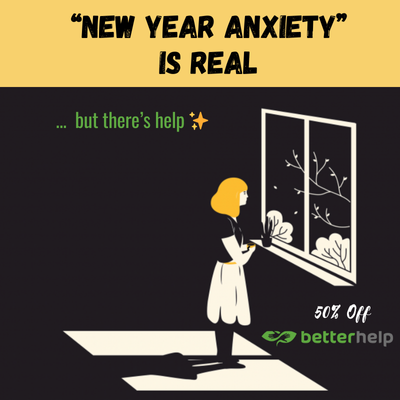*Disclaimer: Elephant Journal articles represent the personal opinion, view or experience of the authors, and can not reflect Elephant Journal as a whole. Disagree with an Op-Ed or opinion? We’re happy to share your experience here. Warning, f-bombs ahead!
Lawmakers are pushing more coercive and voluntary “mental health treatment” as the fix for highly publicized shootings.
Will more “treatment” mitigate violence?
Is proposed legislation such as Representative Tim Murphy’s “Helping Families In Mental Health Crisis Act,” a way to avoid grappling with anger inducing sicknesses of current status quo societal structure—while we pretend that we are enhancing our communities with more and more labels and drugs?
In blaming our Nation’s descent into violence on mental illness, mass modes of thought have neglected an important piece of information.
Mental illness isn’t real.
In asserting this truth, one is not somehow required to solve gigantic and somewhat intractable societal problems.
If we continue to dismiss compelling arguments about the non-existence of chemical brain imbalances—solely because we don’t have answers for all problems inherent to the human condition—space for the only “alternative” to violence—community—will never open up.
In a lot of ways, the nonexistence of biological boogeymen is a harsher pill than hypothesized mental disorder.
To diagnose someone as “mentally disordered” is to sentence them to a lifetime of impotence in terms of governing their emotions or evolving within traditional routines of functionality. This is an expression of cynicism with regards to the individual and an incredibly limited view of humanity.
However, the construct of “mental illness” (upon which such a prognosis rests) is simultaneously wishful fantasy.
Mental disorder is an illogical dream in which it is possible for everyone and everything to be ok if all who are “deficient” get enough timely and adequate treatment.
A comforting fantasy in which the freak out can be contained over there, within disordered minds. Creating an immunity in ordered minds or brains lacking bio-chemical imbalances. A discrete experience, over there, within sick individuals.
To assert that the mind cannot be disordered and cannot imperviously hinder our trajectories is not to posit that it is ever possible for everything and everyone to be peachy.
Quite to the contrary, honest assessment of the human condition requires exploring horrifying and disgusting aspects of society instead of ignoring contextual problems while we pretend to correct metaphorical chemical imbalances and treat fabricated illnesses.
All the while, adding an unnecessary problem (iatrogenic disability) atop inexorable struggle and strife. The truth, that mental illness isn’t real, constitutes acknowledgement of how much we don’t know and never will understand. To culturally debunk the fallacy of mental illness is to appreciate somewhat intractable and oppressive instincts and ways in which we organize ourselves and relate to each other.
It is also to acknowledge crazy experiences for which we can’t identify semblance of causality.
Experiences for which both the questions, “What is wrong with you?” and “What happened to you?” are largely irrelevant and futile.
This is an uncomfortable truth. An uncomfortable opportunity laden truth. A truth which opens space for enhancing the harmony and texture of our communities versus leaving the mess untouched by disengaging and pretending that we’ve mitigated it via unsuccessful stabs at the inhumane aim of drugging, locking away and silencing that which is inconvenient.
Mental illness isn’t real.
According to the psychiatric industry, mental illness is not a verified medical condition.
Psychiatrist E. H. Parsons:
“We have to remember that we are not treating diseases with this drug. …We are using a neuropharmacologic agent to produce a specific effect.” (Whitaker, Robert. Anatomy Of An Epidemic Pg. 50 – 51).
Psychiatrist David Healy:
“The serotonin theory of depression, is comparable to the masturbatory theory of insanity” (Whitaker, Robert. Anatomy Of An Epidemic Pg. 74 – 75).
You might understandably ask,
“Who cares about clever semantics and intellectual arguments? Everyone knows someone whose experience of living is a burden to them and those around them. The phenomenon of not being able to function due to one’s experience is very real. Why does it matter what we call it?”
It matters because:
The lives of children are being pre-determined as beholden to brain diseases that they will need drug cocktails for every day for the rest of their lives. Drug cocktails which will likely shorten their lives.
Framing struggle as a life-long medical condition has resulted in an unsustainable swelling of our disability rolls.
It matters because:
Independent of what science does or doesn’t say. Independent of chasms between my truth and your truth (which may be irreconcilable at the moment). If you tell the world that your brain is defective, your human and constitutional rights will be violated.
Mental illness is not real in the medical sense of the word illness. Hypothesized biological causality of experiences labeled symptoms of bipolar disorder, schizophrenia, ect., have never been scientifically verified.
Let’s talk about what really fucks people up.
Can we honor brutalities of the human condition? We run each other over with automobiles. We shoot and kill when we’re hungry. Armies invade and pillage communities. Lovers drop dead. Sometimes rain doesn’t fall and villages starve. Tectonic plates have been known to shift. The earth quakes and engulfs entire civilizations. People lose their minds for no reason.
It is dishonest to imply or state that mental illnesses cause what can be—within the context of traditional daily routines—torturous and disabling experiences. The Diagnostic and Statistical Manual of Mental Disorders erroneously frames certain human behaviors and experiences as empirical mental disorders.
Some psychiatrists openly state that empirical laboratory tests have never proven the existence of so-called mental illness. Others demonstrate this each time they speciously equate taking insulin for the objectively observable and measurable medical condition diabetes with taking tranquilizers, stimulants, or other drugs for deductively and inductively supposed chemical brain imbalances.
Chair of the DSM5 task force, David Kupfer M.D. says,
“In the future, we hope to be able to identify disorders using biological and genetic markers that provide precise diagnoses that can be delivered with complete reliability and validity. Yet this promise, which we have anticipated since the 1970s, remains disappointingly distant. We’ve been telling patients for several decades that we are waiting for biomarkers, we’re still waiting.”
Mental Illness isn’t real.
The mental illness fairytale, in and of itself, might be cozier than penetrating looks at recondite pain. Believing in mental illness might be easier than engaging the fray of imperialism, capitalism, violence, racism, sexism, ect.
The construct is a tool for the powerful and wealthy. If we don’t define flipping out as abberence on the part of the individual (regardless of what science does or doesn’t say about brain lesions), the preponderance of resources and control cannot remain in the hands of an infinitesimal minority.
Perhaps we are a people focused on individual aggrandizement. A people resistant to immaterial understandings of existence. Resistant to frameworks which emphasize transcending self and mundane pursuits. As such, perhaps we crave erroneous compartmentalization of inexplicable suffering, chaos and joy.
Maybe belief in mental illness enables us to stick to the rat race.
Truth may be harsher than the notion of mental illness. The consequence of accepting hypothetical mental illness as a tangible medical condition however, has been an unnecessarily dysfunctional society with far more tragedy than need be.
Cultural adoption of the idea of unproven mental illness, in the form of proven scientific fact, is a far harsher pill than life on life’s terms. The ramifications of “mental illness” as an organizing principal around which society operates are insidious and potentially cataclysmic.
Mental illness is a metaphor, not a tangible entity that has ever been observed or explained with enough clarity or specificity to prove its existence. Imputing neurochemical medical conditions to intense experiences, when such claims don’t satisfy rudimentary scientific burdens of proof is harmful.
Mental illness isn’t real.
Reducing suffering to biochemistry is inconsistent with the history of civilization. To attribute inconvenient experiences to brain disorders is to discredit most frameworks developed over the arc of humanity. Our unrealistic reliance on scientific understandings of and solutions for suffering, devalues accumulated lenses of thought such as: history, religion, literature and every form of artistic expression for that matter.
To assert that something discrete and fixable is wrong inside of people having a tough time getting by is to dismiss the reality that life involves rape, poverty, loneliness, loss, scary unpredictability, accidents, mistakes and tragedies.
Since the dawn of time, every civilization with surviving documents has communicated that the experience of existence inextricably involves hardship beyond our grasp.
So unless disregarding the collective anecdotal wisdom of mankind and supplanting it with scientifically unsubstantiated scientific claims is truthful—mental illness is a fallacious construct.
~
References:
Whitaker, Robert. ANATOMY OF AN EPIDEMIC. Pg. 50 – 51.
Whitaker, Robert. ANATOMY OF AN EPIDEMIC. Pg. 74 – 75.
David Kupfer, MD, May 3, 2013 American Psychiatric Association News Release, Chair of DSM-5 Task Force Discusses Future of Mental Health Research.
Love elephant and want to go steady?
Sign up for our (curated) daily and weekly newsletters!
Apprentice Editor: Brandie Smith/Editor: Catherine Monkman











Read 18 comments and reply